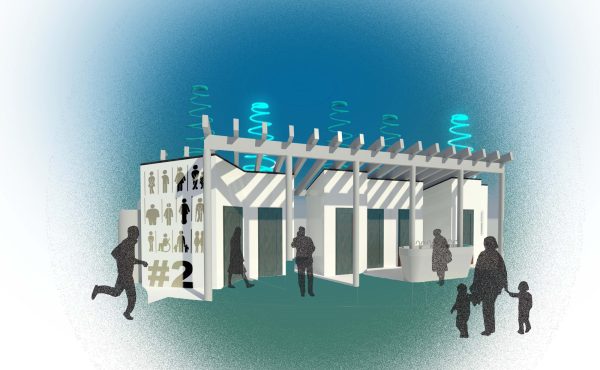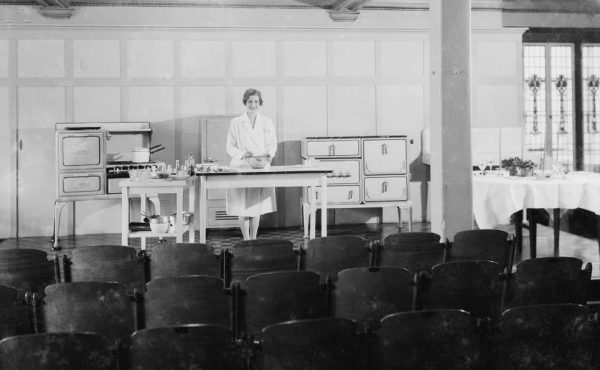
By this time next week, the City of Toronto will have a new chief magistrate, and likely (thankfully!) the first mayor who will be situated somewhere to the left of where we’ve been for a dozen years. The outcome, of course, is hardly a foregone conclusion, regardless of what the polls say, so voting is as critically important as it would be in a seemingly more competitive race. Indeed, with Ana Bailao scooping up consequential endorsements (Toronto Star, John Tory), the last lap or so could be much tighter than many people have assumed until now.
Without trying to handicap the outcome, I do think it’s worthwhile contemplating what the next mayor may face, and specifically in regards to the three most important sources of rival power that they will encounter: council, the City bureaucracy, and the provincial government. Let’s take them in order.
Council
Absent a resounding majority, which at this point seems unlikely, the next mayor will have to work hard to get his or her agenda through council, which is the first big hurdle. A generous tally of left-centre councillors puts that block at about 12 votes (of 26), including Olivia Chow if she wins, and 11 if she doesn’t. Mark Saunders isn’t knocking down many pins when it comes to councillor endorsements (he’s got one), so he’d likely face an even larger contingent of council skeptics.
The candidate most likely to re-assemble the early John Tory coalition is Ana Bailao, who has support from both the right (Frances Nunziata) and left-ish centrists like Shelley Carroll and Chris Moise, and the leadership of the local labour movement. But her polling numbers, though they seem to be rising, have never come close to Chow’s.
If either Chow or Saunders wins, they’re going to have to hustle for each victory on council, and that mathematical reality will drive them to find compromise positions or negotiate the kind of trade-offs that enabled David Miller to pursue the more progressive elements of his program back in 2003 and 2006. The geographic breadth of their victory will also matter.
The x-factor, of course, is whether the next mayor uses the “strong mayor” powers enacted by Doug Ford. These provide the office holder with the authority to hire/fire senior civil servants, make unilateral committee and committee chair appointments, push through a budget, and win votes related to “provincial priorities” with only a minority of councillors.
My guess is that whomever wins will avail themselves of some of these powers, several of which were de facto practices anyway.
As well, any new mayor is going to change the make-up of the executive committee, which functions as a kind of cabinet and whose membership comes with a certain expectation of cabinet-style voting discipline. There are two interesting questions if Chow wins: One, what happens to the seven council members of Team Ana? And two, where do the three other councillor-mayoral candidates (Josh Matlow, Brad Bradford and the impressively hapless Anthony Perruzza) land, in terms of appointments as committee chairs or other senior council roles?
Next, what about the black box scenario in which a mayor opts to ram through a policy that somehow aligns with a provincial priority but is only backed by a minority of votes? Bradford and Saunders both bragged that they’d avail themselves of this anti-democratic authority. But such a move is, to my eye, strewn with political IEDs, and seems unlikely to happen anytime soon.
First, it’s not at all clear how and who determines whether a particular mayoral motion is in alignment with provincial priorities. The regulation enabling this power is as vague and open-ended as could be, and I can easily imagine lengthy council arguments about how to interpret it. Second, any mayor who rallies a clutch of loyalists to push through his or her agenda is invariably going to be faced with a rebellion from irritated council moderates who don’t want their needs and votes to be cast aside for the efficiency’s sake.
There’s a reason that pre-affair John Tory didn’t immediately reach for this power: it comes fully loaded with blow-back potential, as I suspect he realized.
City Government
For reasons that have much to do with council’s aversion to taxing at the level required to run a complex big city, the glaring administrative challenge facing the new mayor is the too-much-body/not-enough-blanket problem. Council’s priorities and plans, plus all the pressures from Queen’s Park, in no way align with the money the City needs to deliver on all of said plans and priorities and edicts. Ergo, the $1 billion sink hole in the middle of this year’s budget.
But the municipality, as an institution, also has a remarkable ability to step on the rake, as Ed Keenan memorably put it in a recent column about the City’s CafeTO screw-up. There are so many examples of divisions working at cross purposes with one another, or blithely setting fire to council directives. And, as I’ve argued previously in this space, the City administration is haunted by rule-obsessed Victorian ghosts — an inheritance that needs to be broadly acknowledged before it can be thoroughly exorcised.
I get that managing local government is, in many ways, an un-winnable proposition, and that the endless brokering and balancing of interests can bring unhappiness to all parties, especially in a financial crisis. But the next mayor — working with a senior management team that fully understands the breadth of the problem and is willing to shake things up — must do more than just extinguish the four-alarm blaze that is the City’s budget.
They also desperately need to figure out why the City under-delivers on so many council priorities and then ruthlessly surface the causes, which are not — and this can’t be over-emphasized — just about money. It’s also about the City of Toronto’s corporate culture, which has become ever more disconnected from the ways in which progressive and thriving cities manage all those quintessentially urban tasks — congestion, housing, public space, climate change, etc.
Bottom line: the crisis that is so apparent in so many aspects of municipal government in Toronto must be understood as a generational opportunity, but the next mayor has to seize the day and press ahead with long-overdue reforms that go well beyond adequate taxation.
Queen’s Park
The relationship between the City of Toronto and Queen’s Park is a disgrace in so many ways, largely due to the fact that John Tory assumed a supine posture when it came to anything involving the Ford government. How the City reasserts its independence is the billion-dollar question, particularly in light of the fact that the provincial Tories have no qualms about moving the legislative goalposts when it suits their purposes — a tactic I can see them using again.
No one wants gavel-to-gavel conflict. However, the next mayor has to figure out how to restore a measure of balance and healthy tension, which will mean identifying pain points and applying pressure when necessary, yet also figuring out where and when the two governments’ interests align.
Queen’s Park may adopt a transactional approach to dealing with big cross-cutting issues (TTC funding, Ontario Place, the Gardiner, Metrolinx). Still, the new mayor will have to be cagey about the negotiation process, given that the City has so few institutional cards in its hand and that the Ford government has a sturdy majority.
What Tory consistently failed to do is recognize that the mayor and council do have plenty of political leverage, and, if necessary, bureaucratic leverage. (Rob Ford, it should be said, certainly understood how to play his hand.) Scratch that: Tory didn’t fail to recognize the city’s leverage; he just had no intention of using it.
There’s no point trying to game out these complex dynamics, except to note a few key points: Chow will be able to tap into the NDP’s increasing momentum/profile under new leader Marit Stiles, whereas Liberal or Liberal-adjacent candidates (Matlow, Bailao, Mitzie Hunter) don’t have any ability right now to double-team Ford in the legislature. Nor will they get very far if they try to weaponize the federal Liberals, whose relationship with Ford Nation works just fine, thank you very much.
The truth, right now, is that there’s really no way of knowing how the next mayor will deal with Ford; all we can say for sure is that the inter-governmental affairs file is going to be extremely active, not to mention determinative.




